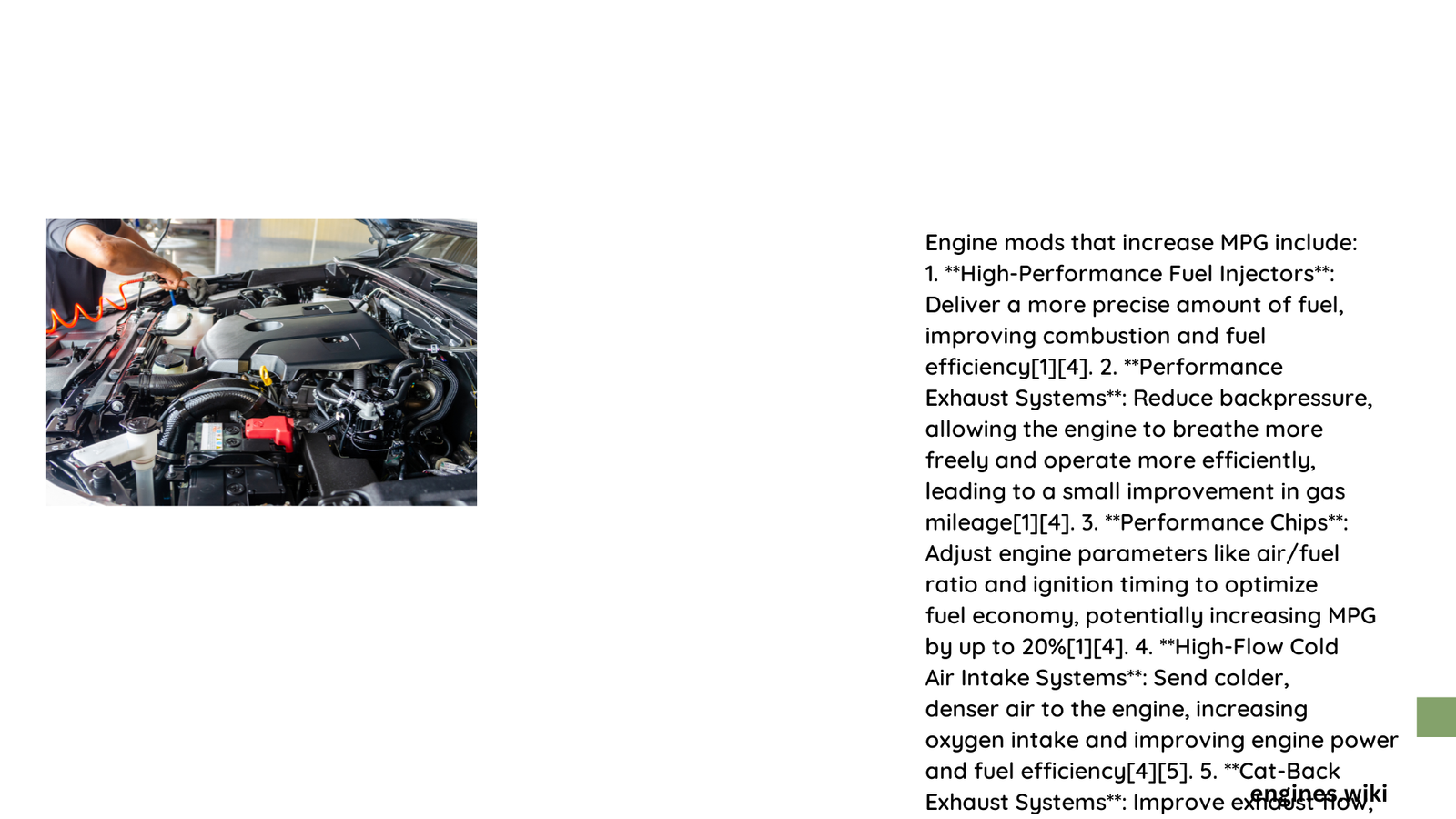Modern vehicle owners constantly seek ways to enhance fuel economy without compromising performance. Engine modifications offer strategic opportunities to optimize fuel consumption, with carefully selected upgrades potentially increasing miles per gallon by 5-20%. By understanding precise tuning techniques, air intake improvements, and intelligent electronic modifications, drivers can achieve meaningful efficiency gains while maintaining engine health and performance standards.
What Are the Most Effective Engine Modifications for MPG?
How Do Air-Fuel Ratio Adjustments Impact Fuel Economy?
Optimizing air-fuel ratios represents a critical strategy for improving fuel efficiency. The ideal stoichiometric ratio for gasoline engines is approximately 14.7:1, where precise calibration can yield significant benefits:
| Modification | Potential MPG Improvement | Cost Range |
|---|---|---|
| AFR Tuning | 3-5% | $200-$500 |
| Spark Timing Optimization | 2-4% | $150-$400 |
Key considerations for air-fuel ratio modifications include:
– Maintaining safe combustion parameters
– Using high-quality fuel
– Professional diagnostic equipment
– Avoiding extreme lean mixtures that risk engine damage
Can Cold Air Intakes Enhance Fuel Efficiency?
Cold air intake systems offer modest but meaningful fuel economy improvements:
- Performance Benefits:
- Cooler air density increases combustion efficiency
- Potential 1-3% MPG improvement
- Reduced intake air temperature
- Enhanced engine breathing capabilities
Installation Factors
- Average cost: $250-$500
- DIY or professional installation options
- Compatibility with specific vehicle models
- Importance of proper sealing and routing
What Role Do Performance Chips Play in MPG Enhancement?
Performance chips provide sophisticated engine management strategies:
Chip Tuning Advantages:
– Optimize torque delivery
– Enable earlier gear transitions
– Improve fuel injection precision
– Potential 15-20% fuel economy improvement
Implementation Considerations:
– Professional calibration recommended
– Costs range from $300-$600
– Minimal installation time (30-60 minutes)
– Vehicle-specific programming requirements
How Do Exhaust System Upgrades Contribute to Efficiency?
Exhaust modifications can marginally improve fuel economy:
- Cat-Back Systems:
- Reduce exhaust backpressure
- 1-2% potential MPG improvement
-
Enhanced engine breathing
-
Header Upgrades:
- Improved exhaust flow dynamics
- Minimal direct MPG gains
- Better suited for performance enhancement
Critical Recommendations for MPG-Focused Engine Modifications
- Always consult professional automotive technicians
- Use high-quality components from reputable manufacturers
- Maintain realistic expectations about efficiency gains
- Consider cumulative modification impacts
- Regularly monitor vehicle performance after modifications
Conclusion

Engine modifications offer strategic opportunities to enhance fuel efficiency. While individual upgrades might provide modest improvements, a holistic approach combining multiple techniques can yield meaningful results. Careful research, professional guidance, and precise implementation are key to successful MPG optimization.
